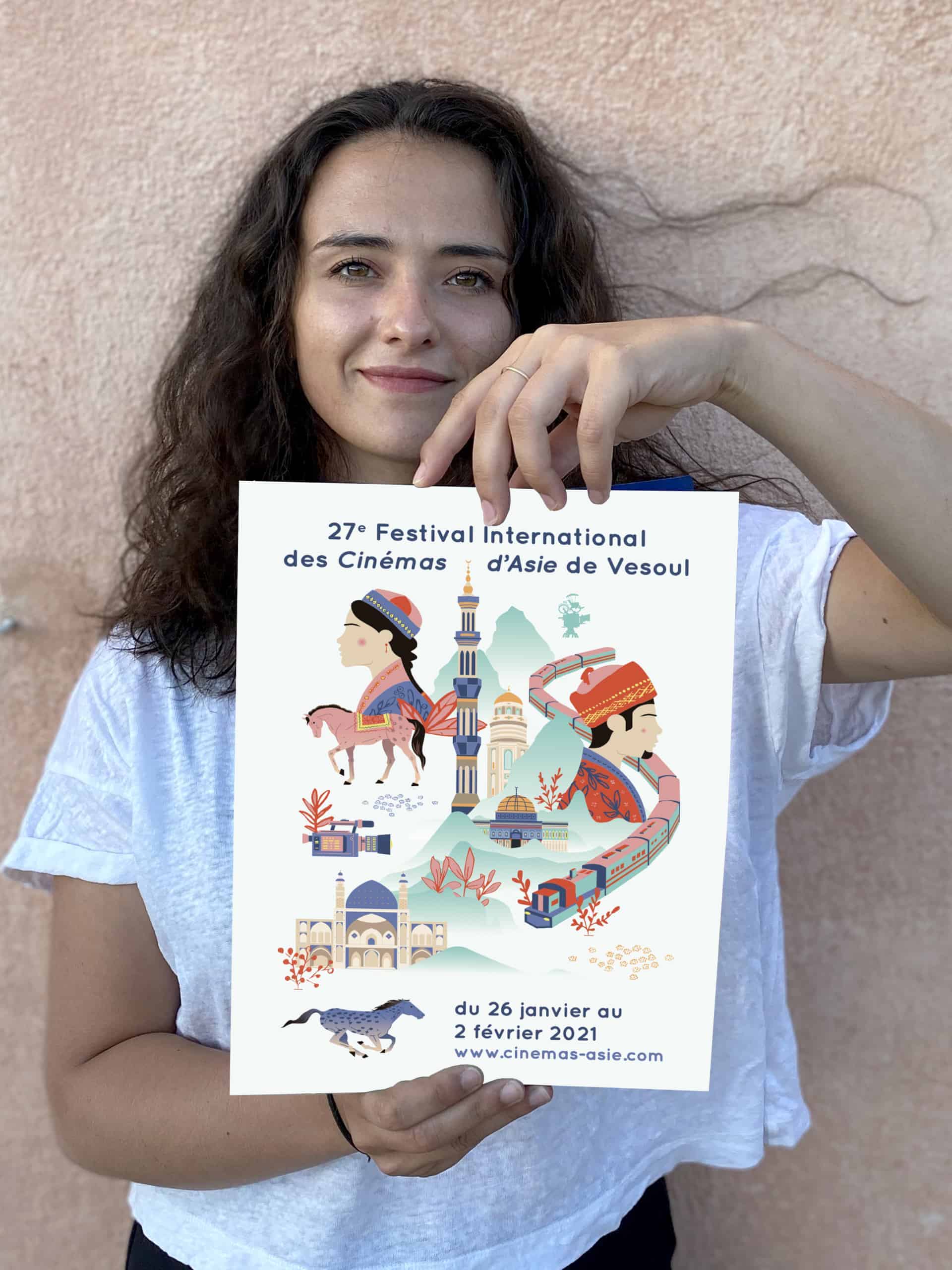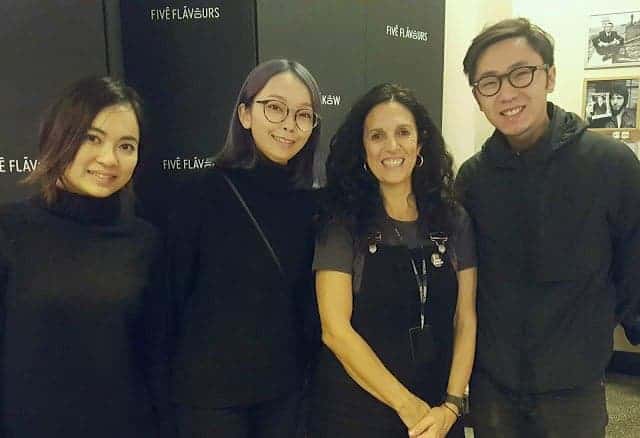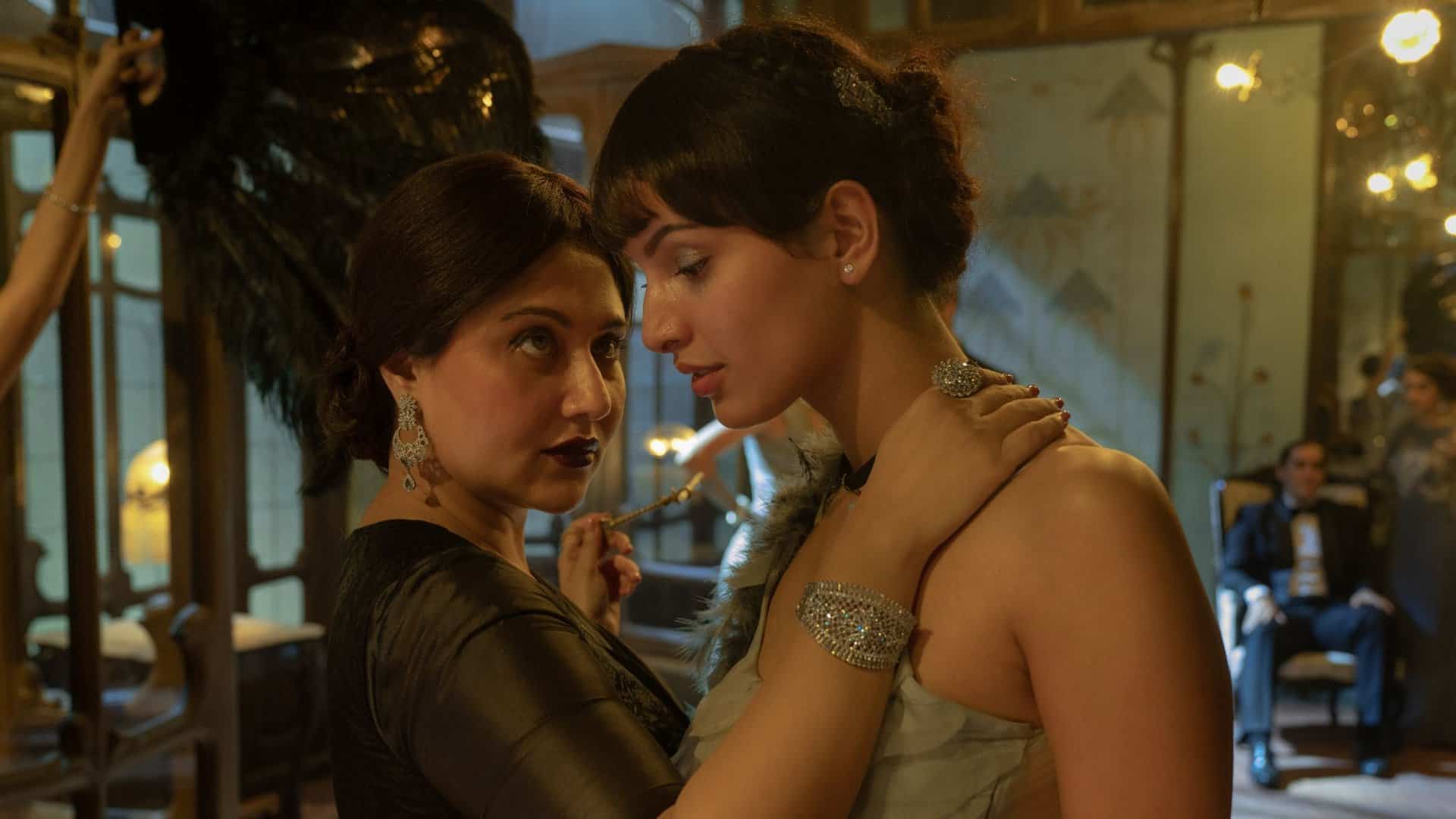Hong Sang-soo has directed over twenty films. His debut feature “The Day a Pig Fell into the Well” (1996) won the Tiger Award in Rotterdam while several of his next films including “Woman Is the Future of Man” (2004), “Tale of Cinema” (2005) and “The Day After” (2017) were selected at the Cannes film festival, while “Hahaha” won the Prix Un Certain Regard at 2010. At Locarno, “Our Sunhi” (2013) won the Pardo d'oro for Best Director while “Right Now, Wrong Then” (2015) earned Hong Sang-soo the Pardo d'oro – Concorso internazionale. His 2020 film “The Woman Who Ran” won him the Silver Bear for Best Director at the 70th Berlin International Film Festival. In our Best Asian Films of 2020 list, “The Woman Who Ran” was voted as the third best.
His distinct style of people drinking and discussing fervently, men appearing as lowlifes, subtle but timely humor, along with the sudden, occasionally double zoom-ins and the frequent use of monochrome have deemed Hong Sang-soo a festival favorite as much as one of the most significant influences of S. Korean indie cinema.
On the occasion of MUBI streaming a retrospective of Hong Sang-soo's films, we present ten of the greatest works of the Korean auteur, in chronological order.
*by clicking on the titles, you can read the full reviews
1. The Day a Pig Fell Into the Well (1996)
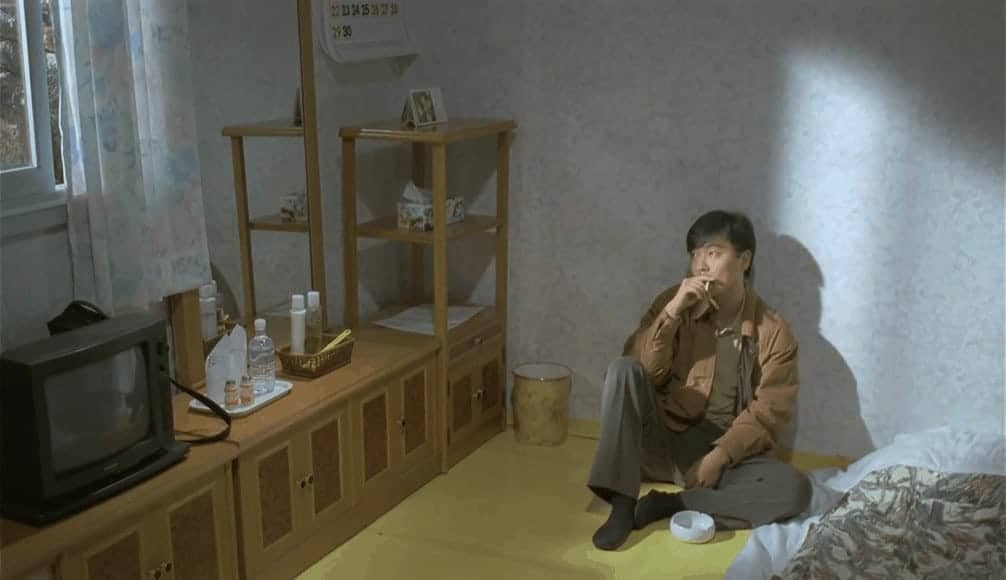
Even over twenty years since its original release, “Pig” resonates. Even in a metropolis teeming with opportunity, each individual is still alienated from one another in the grand scheme of passion. Gender dynamics have changed little over the years, where women still have little room to say “no” without fear of consequence. In this emotionally-charged drama of chivalrous declaration, power imbalance, and not much backbone, Hong's grand Shakespearean tragedy makes one thing clear: there is no such thing as real love. The only constant is – and always will be – loneliness. (Grace Han)
2. The Power of Kangwon Province (1998)
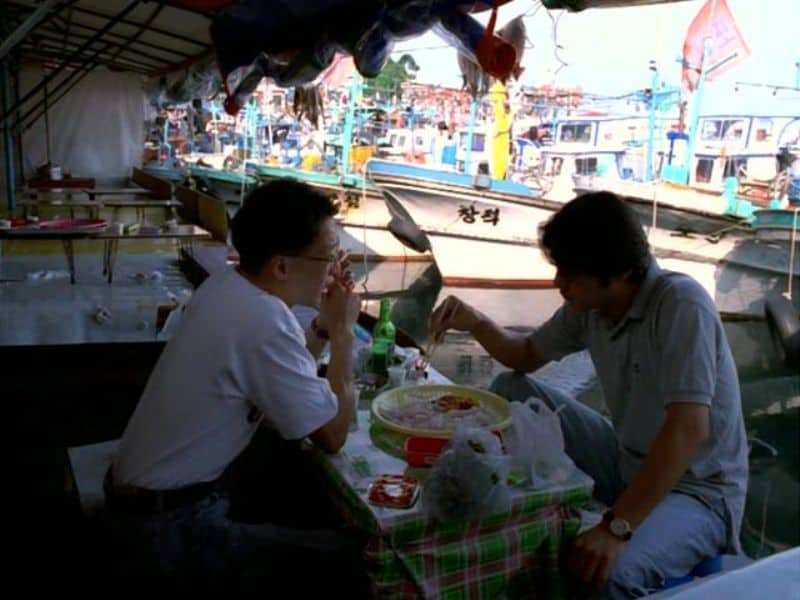
Yeong-cheol Kim's cinematography is a highlight, giving a true nineties East Asian feel throughout – one able to recall the works of Wong Kar-wai and Hou Hsiao-hsie . Shots give the feel of a road movie; less urban and industrialised as many films from South Korea. The still camerawork keeps an eavesdropping distance on the conversations, as if we are sat at the next table, swigging soju; now regular in his films.
While many of his movies follow similar lines, seemingly repeating scenes, “The Power of Kangwon Province” is one of Hong's original and best works, with enough nineties charm to keep it as a distinct film in the memory. (Andrew Thayne)
3. Woman is the Future of Man (2004)
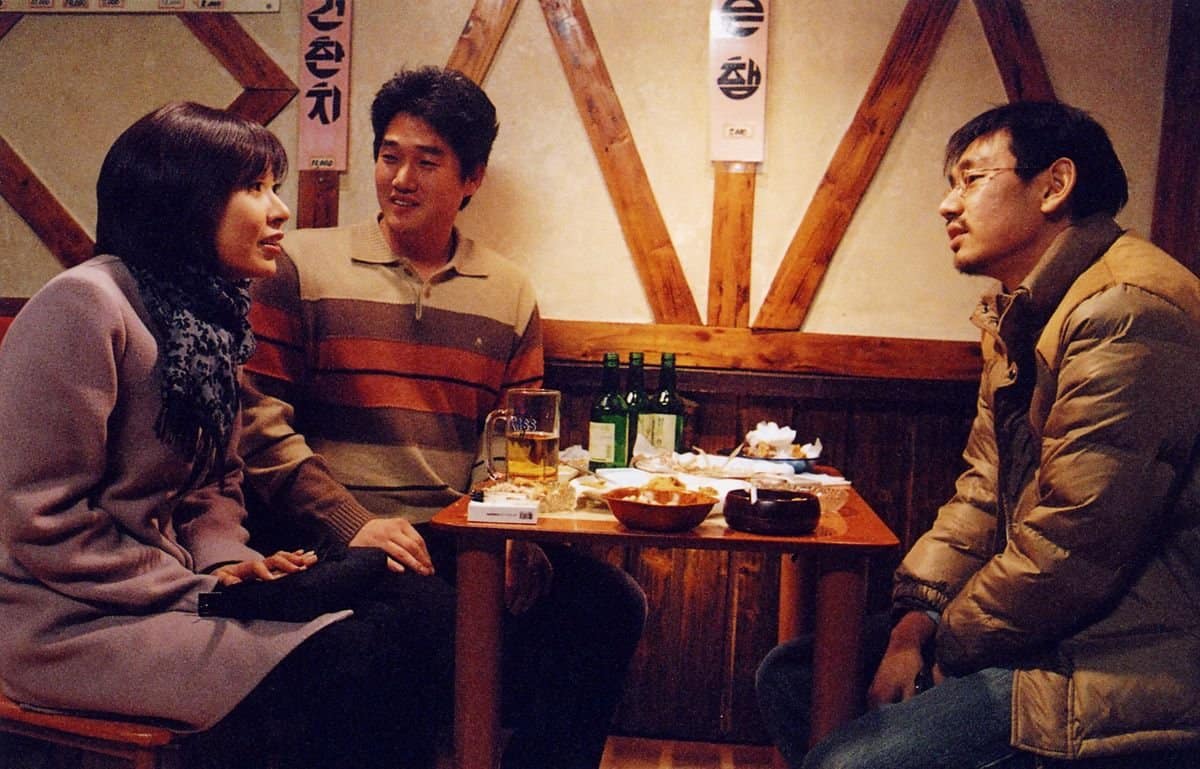
It is hard to make a feature without any likeable or redeemable characters but Hong Sang-soo manages to do just that with “Woman is the Future of Man”, which proves to be yet another interesting and well-crafted production from the Korean auteur which may not hit the heights of some of his works that preceded it, but still manages to impress and remains accessible, thanks to its inspired casting and polished technical merits. (Rhythm Zaveri)
4. Tale of Cinema (2005)

“Tale of Cinema” ends being a charming early entry in Hong's oeuvre that is far breezier than its predecessors and a good example of the style and substance that the director would go on to adapt consistently. From his earlier works, this is certainly one of the most accessible entry point into his filmography (Rhythm Zaveri).
5. Hahaha (2009)
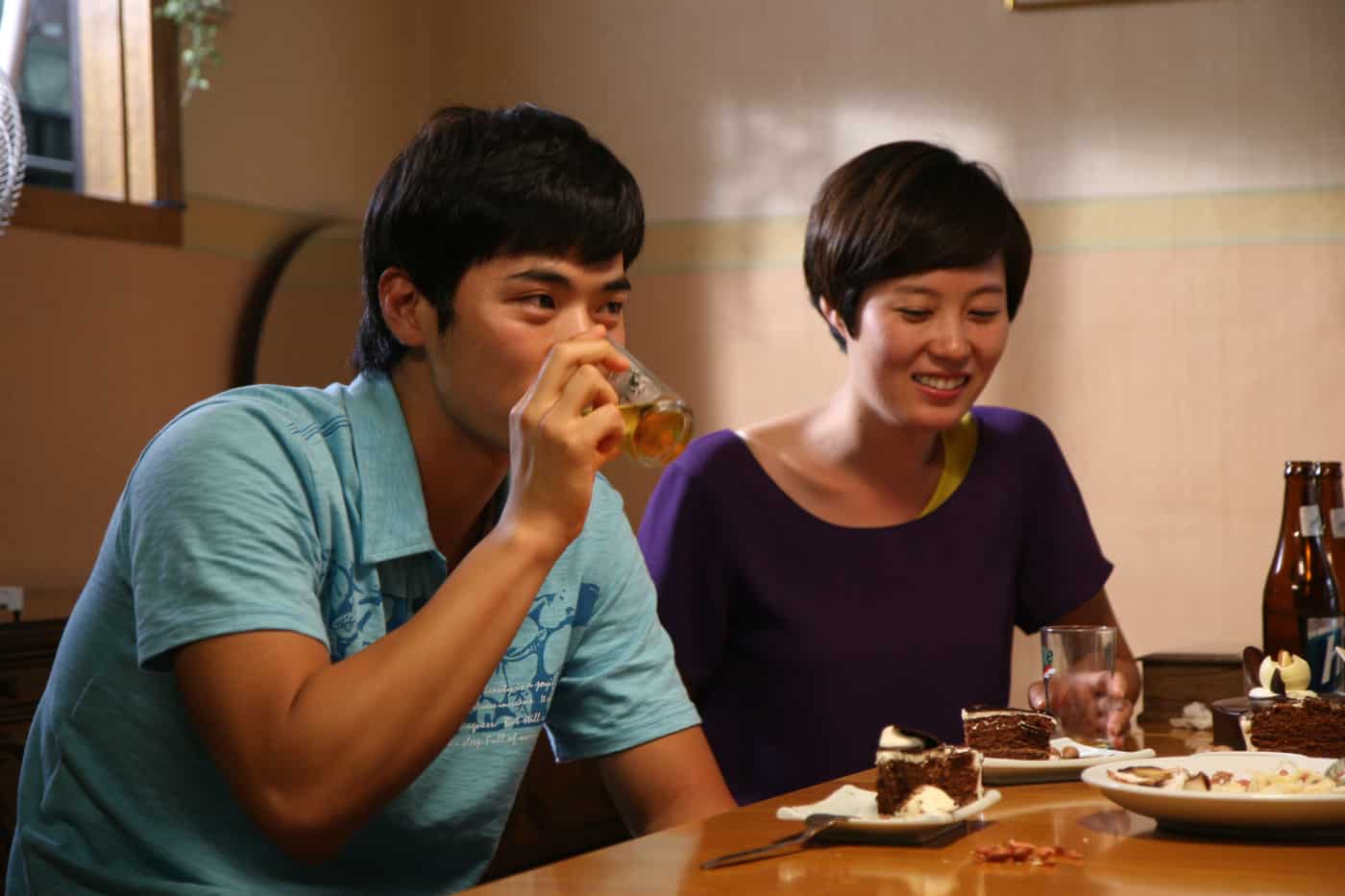
Hong Sang-soo directs and pens a film that focuses on human relations, both romantic and in terms of family, while he manages to squeeze some comments about poetry. What sets his film apart from the plethora of similar ones is that his characters are eccentric, very frequently drunk, not sure at all of what they want from their lives, although willing to go to extremes to achieve it, and liars. In that fashion, Bang Joong-sik is in love with Moon-kyeong, but does not want to leave his wife and children. Kang Jeong-ho is torn between two women, and Wang Seong-ok between two men. Furthermore, getting drunk seems to be the only action that makes them decide, in a rather humorous concept, which appears repeatedly in the film. (Panos Kotzathanasis)




